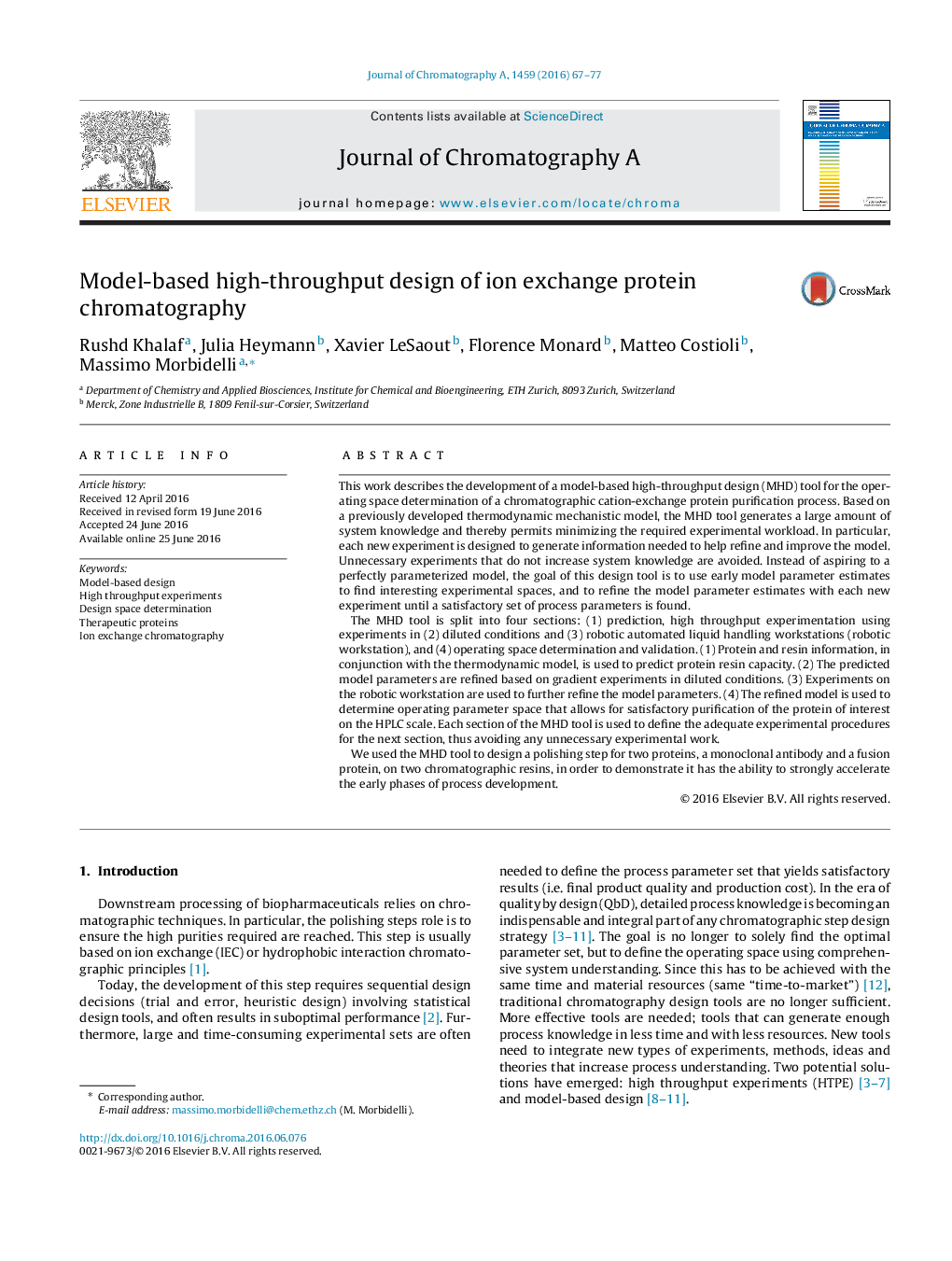| Article ID | Journal | Published Year | Pages | File Type |
|---|---|---|---|---|
| 1200100 | Journal of Chromatography A | 2016 | 11 Pages |
•High-throughput and model-based design tools.•Operating, design and working space determination.•Knowledge based quality by design approach.•Quickened estimation of optimal process parameter space.•Ion-exchange polishing of monoclonal antibody and fusion protein solutions.
This work describes the development of a model-based high-throughput design (MHD) tool for the operating space determination of a chromatographic cation-exchange protein purification process. Based on a previously developed thermodynamic mechanistic model, the MHD tool generates a large amount of system knowledge and thereby permits minimizing the required experimental workload. In particular, each new experiment is designed to generate information needed to help refine and improve the model. Unnecessary experiments that do not increase system knowledge are avoided. Instead of aspiring to a perfectly parameterized model, the goal of this design tool is to use early model parameter estimates to find interesting experimental spaces, and to refine the model parameter estimates with each new experiment until a satisfactory set of process parameters is found.The MHD tool is split into four sections: (1) prediction, high throughput experimentation using experiments in (2) diluted conditions and (3) robotic automated liquid handling workstations (robotic workstation), and (4) operating space determination and validation. (1) Protein and resin information, in conjunction with the thermodynamic model, is used to predict protein resin capacity. (2) The predicted model parameters are refined based on gradient experiments in diluted conditions. (3) Experiments on the robotic workstation are used to further refine the model parameters. (4) The refined model is used to determine operating parameter space that allows for satisfactory purification of the protein of interest on the HPLC scale. Each section of the MHD tool is used to define the adequate experimental procedures for the next section, thus avoiding any unnecessary experimental work.We used the MHD tool to design a polishing step for two proteins, a monoclonal antibody and a fusion protein, on two chromatographic resins, in order to demonstrate it has the ability to strongly accelerate the early phases of process development.
